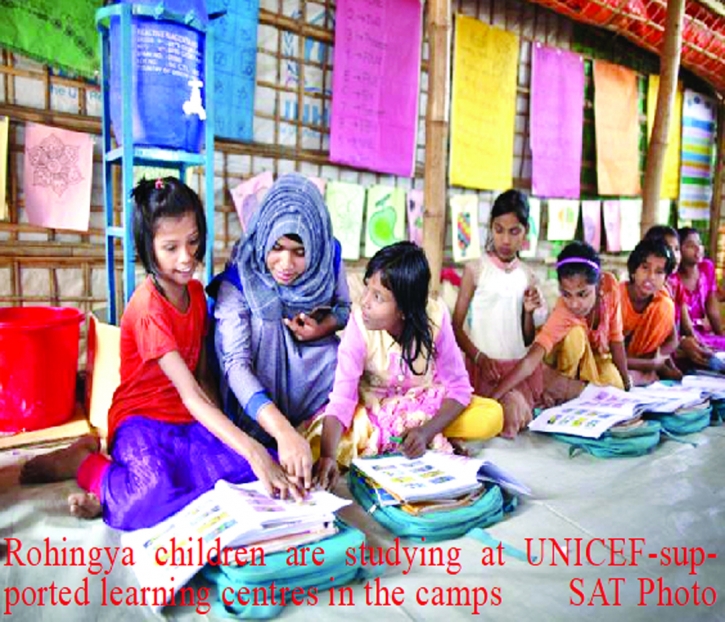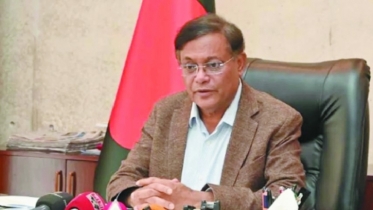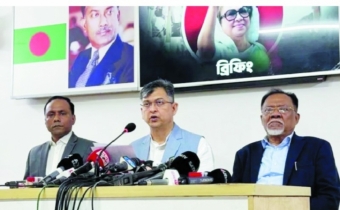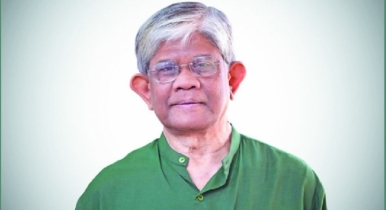
The Myanmar Curriculum Pilot, launched by UNICEF and partners in November 2021, is a significant step towards ensuring the fundamental right to education for Rohingya refugee children in Bangladesh's Cox's Bazar refugee camps. The pilot aims to provide formal and standardized education to Rohingya children, preparing them for their return to Myanmar.
In the first quarter of this year, awareness-raising sessions and community outreach volunteers, working through partners and community-based structures, reached 10,585 children and adults from the Rohingyas.
UNHCR currently reaches 15.3% of the school-age Rohingya population. Within March 2023, 70,207 Rohingyas between 3-24 years of age were enrolled in UNHCR-supported education programs in early childhood development (ECD), pre-primary, primary, secondary, youth, and adolescent education programs through 1,752 learning facilities including 1,235 community-based learning facilities. In January 2020, the Government of Bangladesh approved the introduction of the Myanmar Curriculum. By 31 March 2023, over 38,000 children (including more than 18,400 girls) had transitioned from the Learning Competency Framework and Approach (LCFA) to the Myanmar Curriculum (MC), reaching grades KG-2, and 6-9. In January 2019, UNICEF led the development of a newly structured learning program known as the Learning Competency Framework and Approach.
The Education Sector in Cox’s Bazar has provided informal education opportunities to 324,000 Rohingya children aged 4 to 14 years based on the LCFA.
In addition, over 10,000 Rohingyas aged 15 to 18 years have received literacy, numeracy, life skills, and vocational skills training. The children of the UNICEF-supported learning centers are now enrolled based on their competency level, whereas previously they were placed in temporary learning centers according to their age.
Recently, the government has allowed the Rohingya children access to formal education under UNICEF leadership to ensure access to learning for the Rohingya children and adolescents and equip them with the right skills and capacities for their future and their return to Myanmar.
Currently, one-third of the 416,000 school-age Rohingya children (3–18 years old) are still not accessing basic education.
UNICEF official Mostafa Mohammad Sazzad Hossain said that they have some initiatives by lessons in the Myanmar curriculum to the Rohingya children as they forget the memories of violence, committed by the Myanmar military.
“We are trying to make them forget the past so that they are not traumatized,” he said
Mizanur Rahma Relief and Repatriation Commissioner (RRRC) of the Office of the Refugee Relief and Repatriation Commissioner Mohammed Mizanur Rahman told The South Asian Times that they are trying to tell them that they have a country and they should go there by learning the ‘Myanmar curriculum’ by setting up some schools in the camps.
“It is difficult to say when we will be able to repatriate the Rohingya children with their guardians to their home country due to the Myanmar authorities are yet to inform us about the starting of reparation,” he added.
“During the Myanmar delegation visit to Bangladesh, the Myanmar delegation asked the Rohingya leaders that they want to back Rohingyas to the ‘Model Villages’ instead of their ancient lands, but, the Rohingya leaders disagreed,” he further added. “In this context, no one can say about the fate of the Rohingya children.
“The Rohingyas living in Bangladeshi camps for more than six years are growing impatient and frustrated since there hasn’t been a favorable environment for their repatriation to Myanmar,” he said.
“The Rohingyas should be sent back to their home country as soon as possible for the shake of their young population,” he added.
The official said that the Bangladesh government is trying to send back the Rohingyas to their home country.
Foreign Minister AK Abdul Momen told The South Asian Times that Myanmar is willing to take the Rohingyas but some foreign governments and international organizations do not support their repatriation at this moment.
"They (the international community) think it will not be wise to send back the Rohingyas to Myanmar until democracy is restored there," he said.
"Our priority is that they (Rohingyas) will return to their homeland. Myanmar is also willing to take them back," he said and added that Myanmar needs to ensure the safety and security of the Rohingyas after their return to their place of origin.
“Myanmar "should keep their promise" for the repatriation of the Rohingyas to their place of origin in Rakhine State. Despite assurance from the Myanmar side, not a single person was taken back over the past years,” he said.
While talking to the reporters after visiting Cox's Bazar General Hospital on November 10, Chinese Ambassador to Bangladesh Yao Wen said that China is actively working on the Rohingya repatriation issue with Bangladesh and Myanmar.
"We hope to initiate the repatriation by sending some of them to Myanmar through a pilot project before or after the national elections in Bangladesh,” he said.
"They can return whenever the situation is right. It can be before or after the elections. Even though we are very close to the repatriation, some efforts are still needed. We are working towards it," he added.
"China considers Bangladesh and Myanmar as good friends, and they trust us. China is working as a mediator on their request. We have brought them together to find a solution so that the Rohingya community can return to their homeland," he claimed.
At the initiative of China, Myanmar government has undertaken a pilot project to build 15 new villages on 750 plots to house Rohingyas. A delegation of 27 members, including 20 Rohingyas, was taken there on May 5 at the initiative of Myanmar to boost the confidence of the Rohingyas and see if the environment in Rakhine State is suitable for repatriation.
But, the Rohingya delegation members expressed that they do not want to go back to the model villages and camps. they want to return to their villages at the Rakhine state of Myanmar.
On 25 August 2017, a massive influx of Rohingya people occurred, with nearly 655,000 individuals, including over 360,000 children, seeking refuge in Bangladesh.
Thousands of people, including women and children, lost their lives in acts of violence. Many endured physical beatings and torture, while girls and women suffered from sexual violence and rape. Moreover, numerous houses and other properties were intentionally burned, compounding the loss and devastation experienced by the Rohingya community.





































